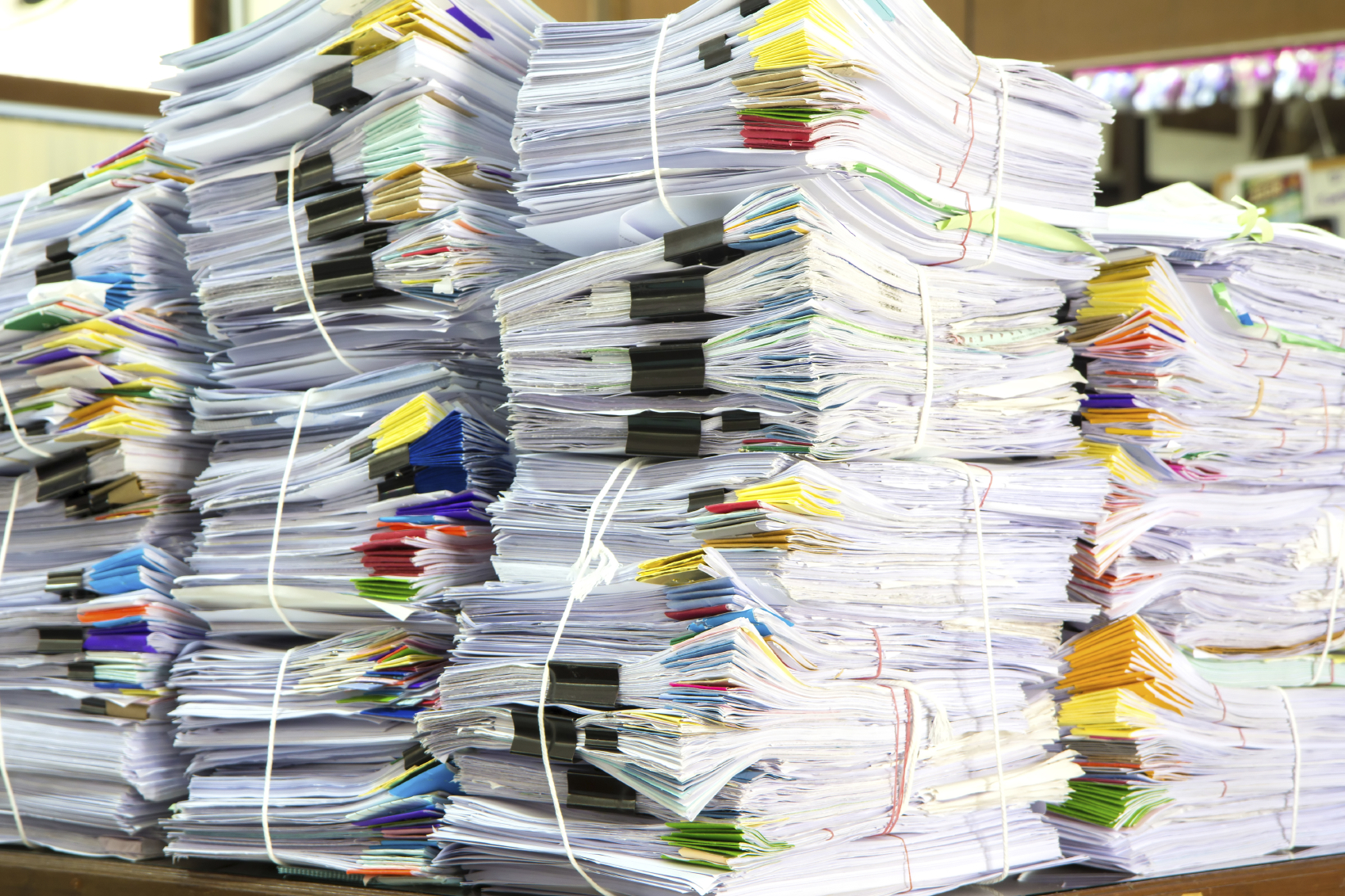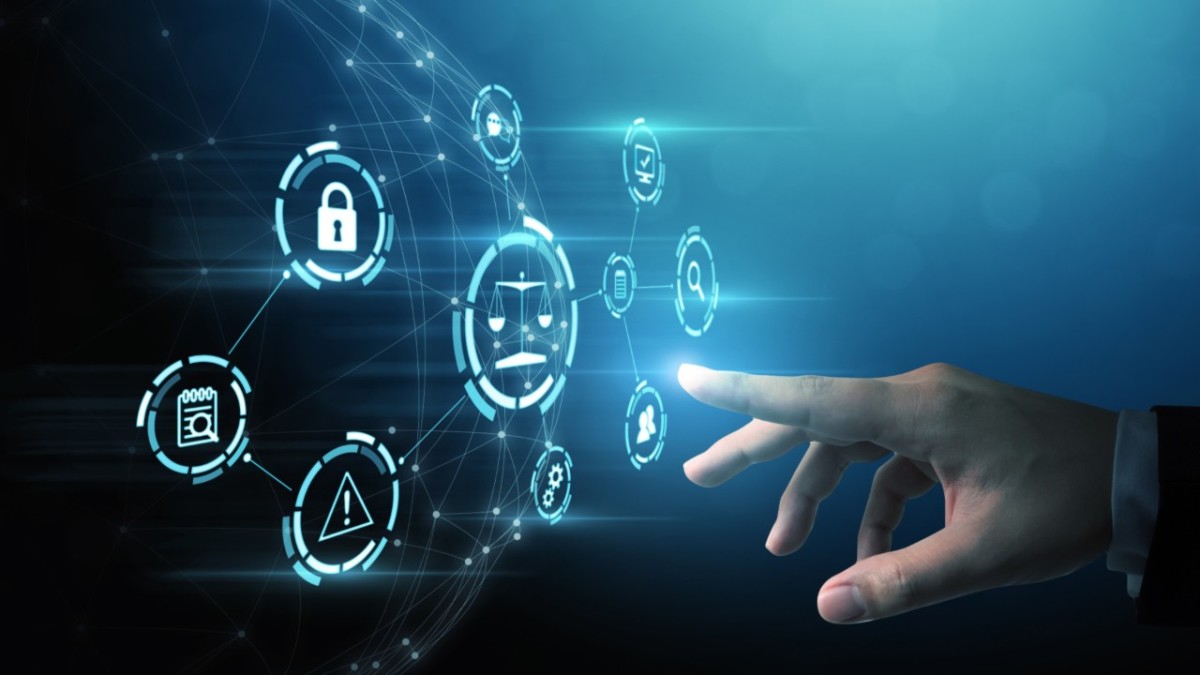It’s clear Klaus has a vision what he wants that society to look like, on page 9 he states:
“The premise of this book is that technology and digitization will revolutionize everything, making the overused and often ill-used adage ‘this time it’s different’ apt.”
Given our hyper connected world, I’d say he is probably right, but he fails to consider that all of this digitization he touts is based on things that physically exist and allow digitization to happen.
He also seems to think all of this technology is ready and waiting for everyone to implement immediately.
I work in IT and I can tell you from experience two things:
Technology makes people stupid and if you don’t understand what you are doing, no amount of technology is going to help you.
Case in point, I worked at a company that has been attempting to use machine learning to gain insights into its business and the industry at large.
So far they’ve failed for two reasons:
- one, nobody in the business understands what machine learning is and what it can do, when it is explained, all they can think of is “better” excel spreadsheets.
- two, the level of analysis the company currently does is so rudimentary implementing something like machine learning would require a breadth of understanding in how the industry works and what factors affect it that quite frankly very few people have.
If you don’t know what to ask, it can’t give an answer.
Remember when Apple’s Siri went online how many people said:
“hey Siri,”
then proceeded to either stumble, or ask it something stupid, i.e. “hey, Siri, do you wanna go out?”
Basically, we are stuck still with the age old adage, garbage in, garbage out, but this isn’t really the point of the book.
The point is technology is going to transform society and based on my interpretation, The Communist Manifesto.
Page 13
“It is our responsibility to ensure that we establish a set of common values to drive policy choices and to enact the changes that will make the fourth industrial revolution an opportunity for all.”
Sounds great, but how is this going to be achieved?
Klaus really likes technology, page 14, he outlines what he calls mega trends:
- autonomous vehicles
- 3D printing
- Advanced robotics
- New materials, digital, and biological.
Sure, I will not critique his list, everyone should know that everything has a positive and negative, but Klaus doesn’t tell us what the negatives are, you have to read the appendices, and how many people do that?
On page 19, Klaus tells us what I think is telling.
”… blockchain technology records financial,transactions made with digital currencies such as bitcoin, it will in the future serve as a register for things as different as birth and death certificates, titles of ownership, marriage licenses, educational degrees, insurance claims, medical procedures and votes.”
Does anyone see a problem with this?
The level of control this can and will have over our lives is enormous.
Now, granted this is the beauty of technology, it will create a level of convenience that we’ve never known, and also a level of control we’ve never known.
Remember when I said the appendices are where Klaus puts all the negatives?
Page 155 is called Shift 16: Bitcoin and Blockchain.
Positives are such things as:
- unbreakable escrow
- new services
- increased transparency

Yet there are no negatives from bitcoin or blockchain, not one.
Yet, surveillance and privacy are mentioned numerous times as a negative impact in the appendix regarding things like smart cities, the connected home, storage for all, etc. But something as transformative as blockchain has none.
What is he hiding?
Off the top of my head, here are a few things:
- complete transaction history of everything you’ve ever bought and sold. This may not sound like a big deal, but let’s remember nobody in power today is going to allow something like bitcoin to become an established, full-fledged currency. Every country is working on their own digital currency, tied to a central bank. Once it is ready, it will be rolled out. You do something that the government doesn’t like - you’re cut off for a period of time. Remember, we’ve already seen a government freeze bank accounts so this is a legitimate cause for concern.
- Physical money will disappear and now couple that with things like licenses, etc, you will have 100% complete transparency.
Sounds like a good thing, right? Unless you want to buy your wife a gift and surprise her or something that you really don’t want anyone to know about, like that purchase from realldoll.com.
What about that moving violation, or the drunk driving charge from 15 years ago, or that 40% grade you got on that high school course, or you had to take remedial math and failed that too.
You might as well forget about calling in sick to see that concert a days drive away too.
What about that accidental entry your doctor put in your file about having herpes?
How long before anyone even realizes the mistake and it has to be corrected?
I don’t think that girl who you are interested in dating would appreciate that if she had the ability to look up that information and if the digital ID is just an alpha numeric combination, as an example, does it matter that anyone can see that information since no one knows who it pertains to?
Everything and anything you can think of will now be available to potentially anyone all thanks to the blockchain ledger.
Given the immutable nature of the blockchain that means literally everything in your life will be on display, even if it’s wrong.
This is something I wonder if anyone has thought of. Since the blockchain is immutable, i.e. can’t change once it is written, what happens when there is a problem like someone who fat-fingers a key or types in the wrong information?
This, I swear, is a true story.
I worked at a company did the back end work for a telco that sold cellphones to companies. Companies would buy the phones,we would process the orders and register the numbers on the network and provide the sim cards.
A report would be provided and one client only wanted a name and number on a report, they weren’t interested in the other things that the report could provide.
Sounds simple, right? Easily something that could be automated, right? Yeah, that didn’t happen.
That information was manually transfered to another spreadsheet because the person doing it wasn’t comfortable with technology and chose to manually re-enter all of the information.
The level of potentially incorrect information in that scenario is immense.
Now imagine an immutable database?
How many incorrect things will be taken as correct and then actions would be taken on that information, before it is caught and another record is entered to correct that entry.
Some of you will say, this will never happen, just remember this, since the beginning of the computer age more paper has been generated, not less.

What makes you think everything will be digitized overnight?
What do you think the possibility that your “digital ID” will be printed out and stuck on a page - an incorrect page?
Or for some reason, your ID needs to be typed into the system and not scanned.
Or imagine, instead that your ID is scanned, you see a doctor, and he gives you a prescription for iron injections as an example.
The doctor makes out a prescription to you for imferon, but instead types interferon, a chemo drug. You don’t know, the pharmacist doesn’t know, but the blockchain says you need interferon. You and I both know because it’s “on the blockchain” no one going to be a call to confirm.
Now, if for instance, this “digital ID” is to be your “new ID” does that mean things like drivers license and other things we call ID will only say yes on the blockchain or will it be what we now understand to be our drivers license, complete with picture and number?
Can anyone see the problem with this?
I would think some really smart and devious people could figure on a way to use that data in nefarious ways, not to mention how one could use the immutable nature of the blockchain to manipulate reality.
The only way I can think they couldn’t is if they didn’t have access to it, which would mean it would be a closed system which creates a host of other potential issues like security and who has access to it, etc.
Then the question becomes, what are they doing with that data and how does that affect you? What kind of oversight would there be?
It makes you wonder if blockchain was invented by the globalists and given to everyone to work out the kinks first before they are ready to implement it.
I would say most people would think that a centralized place for things like licenses etc sounds like a great idea, and I would be hard pressed to have a cogent argument against it, but the problem is, if this becomes your digital ledger for things like who you voted for, the problem this creates is manifold.
Here is a perfect reason why you should have privacy.
Why is it necessary to know who you voted for, unless of course there is a reason?
Political dissidence will effectively disappear, not to mention a host of other issues that could potentially follow someone by voting for the “wrong” party. We’ve already seen in Canada a protest against the government caused the government to suspend bank accounts.
Imagine how easily could something like that could happen for an entirely arbitrary reason?
Isn’t is wonderful how dovetailing in not owning anything along with a digital ID effectively destroys any type of underground economy. You can’t barter with things you don’t have. Couple that with a smartphone that never leaves your side and transmits your co-ordinates continuously, how can anyone say with any certainty that they are free?
The Statsi never had it this good.
In case you are wondering, page 20 Klaus mentions euphemistically the lack of private property,
“This enables the effective use of underutilized assets - namely those belonging to people who had previously never thought of themselves as suppliers…”
He doesn’t outright say you will have no private property, but if you are mandated say to rent a room, or provide a tool, how long before the government takes it, or pays for it, just for it to go into a pool to be used by anyone?
Just about anyone has a bunch of stuff in their house they don’t use regularly, why not get paid for it right?
It may not be the way Marx expected it to happen, but ends justify the means, I guess.
